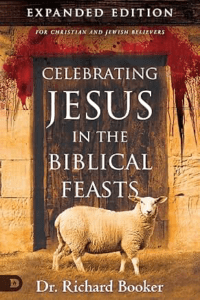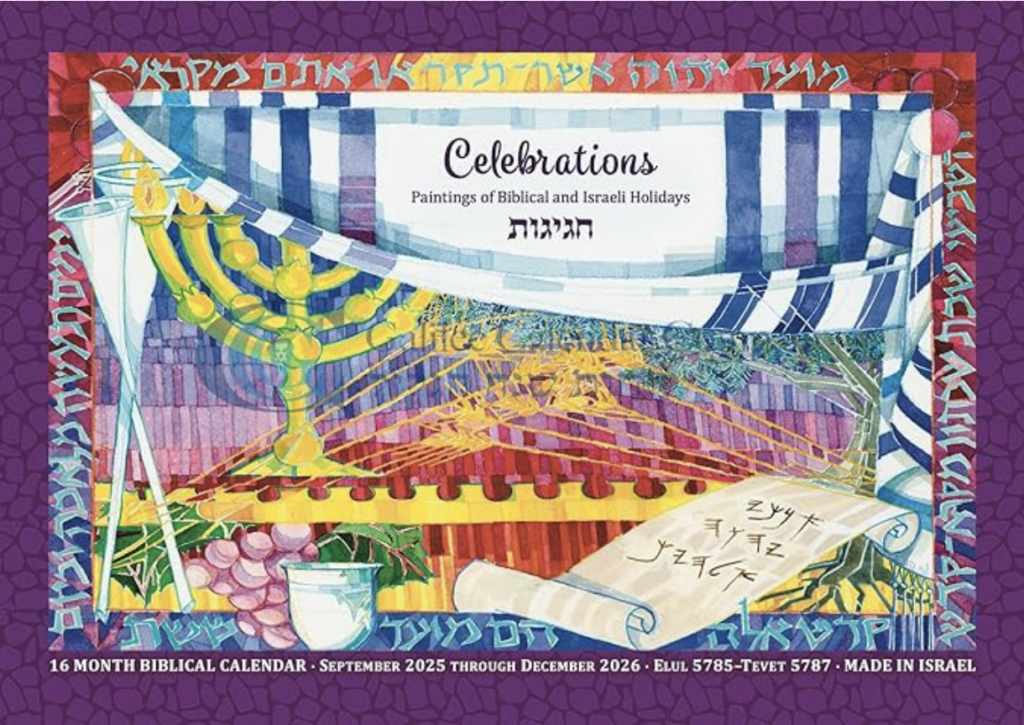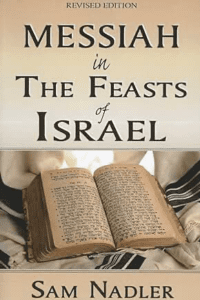
Resolutions: The New Year and Beyond
This time of year, it seems everyone’s thinking about resolutions – losing weight, quitting smoking, reading their bible more, etc. But we’ve also heard that statistics show these resolutions often don’t last long. People stick to them for the first few weeks or months of the New Year and then return to their previous ways.
But what if there was more than one New Year’s Eve? What if there were a few more times in the year marked for a reassessment of our lives and the making of resolutions with the overall goal of bettering ourselves? Just think of who we’d be and what we could accomplish if we routinely adjusted the direction of our lives.

A GPS navigation system recalculates our route if we get off track. If we take a wrong turn or go straight instead of turning left, the system recalculates the course, ensuring that we still reach our destination despite deferring from the path we should be on.
Fortunately, we can do the same with our lives! Though we may be dedicated to God and genuinely want to follow His plan, we all veer off the route He has for us. It takes repeated examination, re-dedication, and re-adjustment to stay where God wants us.
Enter the Holy Days
Recalculating the route is what I love about celebrating the Biblical Holy Days. That’s one purpose of them – introspection and examination of our lives, re-aligning them with God’s plan. Each of these set-aside times also points us back to Jesus! This re-alignment is done many times yearly, and celebrating these days helps my family and I continually recalculate the routes our lives are on. Here are some of those times.
The Sabbath
God commands us to “remember” the Sabbath and keep it holy. But what exactly are we to remember? Ezekiel chapter 20 (verses 12 and 20) tells us that the Sabbath is a sign that we belong to God. Keeping the Sabbath is our acknowledgment of the covenant God made with us.
Our activities on the Sabbath should then point us to Him and remind us of Him and His goodness. The Sabbath, combined with Bible study and attending services, should encourage us to look at our lives weekly and see where we need to make changes to adhere more closely to the will of God.
The Sabbath also provides a time to rest before the next busy week. It gives us time to plan the days ahead and make the necessary changes to help us be more effective weekly.
Passover
The themes of Passover will also encourage close examination of our lives. That we are no longer slaves to Egyptian captors or to sin causes us to recall all God has done for His people. We could never have obtained this freedom for ourselves. Just as the blood of the lamb freed the Hebrew people from Egypt, Jesus, our Passover Lamb, freed us from the sin that enslaved us.
Think of God’s faithfulness to all His people. In the most challenging times, God can free you from what afflicts you, often working a miracle in your life as he did throughout Exodus. Nothing is too hard for God, and there is no limit to how good your life can be when following Him.

Passover brings a question of identity to mind. Who are we? Or, instead – whose are we? The answer for Christians is that we belong to God. He is the one who rescued us and the one who provided a way to Him despite our sinfulness. As His people, we mature in our faith and begin to learn to look at ourselves through His eyes. While He loves, accepts, and forgives us with our flaws, our desire to obey Him grows as our love for Him does.
Unleavened Bread
The Feast of Unleavened Bread is seven days where leaven (yeast) is not only not eaten but also cleaned out of homes altogether. The Bible often uses leaven as a symbol of sin or wickedness. Cleaning leaven out of your home and diet for seven days is difficult! Think of all the crumbs in your pantry or even under your fridge!

The cleanout of leaven causes us to look closer at the sin in our lives. If we’re honest, it’s there on the surface but also in the dark pantry-type corners of our lives! We must constantly be on the lookout for the crumbs of sin in our lives and get rid of them before we end up with a filthy mess. We must also do the more unpleasant cleaning in the parts of our life we’d rather ignore – like that mess under the fridge. During this period, we should sincerely evaluate our lives and identify where sin has been festering, then work to make ourselves more pleasing to God.
Cleaning sin out of our lives should also awaken us to the grace we’ve received. Isn’t it amazing that God knows we aren’t capable of a flawless cleanout and has provided us with a perfectly leaven-free Savior – a gift so indescribably good it makes even a clean home seem like chopped liver!
First Fruits
First Fruits is a Spring festival that celebrates the fertility of the land as a blessing from God. Part of this new growth (a lamb without defect along with wine and bread) is given back to God as an offering and show of gratitude for His blessings. In the New Testament, 1 Corinthians 15:20-23 explains that Jesus is the first fruits.
Just like the Holy Day of First Fruits, which is to recognize ahead of time the blessings that God will give, Paul shows in Corinthians that Jesus’s resurrection assures us of the blessing we’ll receive in the harvest at the end of time. We look ahead to when we’ll commune with God, and Jesus will rule.
Looking forward to this time in the future should prompt us to be grateful and prepare ourselves as offerings. We need to do all we can to align our lives with what God wants of us and be continually and earnestly hunting for what that looks like.
Shavuot
This celebration commemorates the Law God gave to the Hebrew people on Mount Sinai. Also known as The Feast of Weeks or Pentecost, this is what the apostles were celebrating when the Holy Spirit was given in Acts 2. Shavuot is a reminder that God gave us His Law as a blessing and that the Holy Spirit is the Law written on our hearts that was prophesied by Jeremiah (31:33).
But do we see God’s Laws as a blessing? Or do we compromise, justify our disobedience, and declare that certain ancient Laws don’t apply to us? Shavuot is a time to thank God for His Law and to delight in it as the Psalmist does in chapter 1, verse 2. It’s a time to take a close look at our actions and see whether there’s truth in saying that we aim to obey them and delight in them. We should reflect on how God’s Law has improved our lives and its blessing for all his people. How can we better please God by following his commands?
Shavuot is also when we thank God for the gift of His Spirit. Having the Holy Spirit dwelling in us serves many functions, confirmation of our salvation being just one of many. He’s also our guide and convicts us when we need to change the course of our lives. As we celebrate the gift of the Holy Spirit, we pay special attention to whether we’re listening to this conviction and guidance and adjust our hearts, minds, and actions accordingly.
Yom Teruah
Also known as Rosh Hashanah, this Feast gives many reasons for introspection and re-calculation of the routes of our lives. Celebrating our names being written in the Book of Life, remembering the story of Abraham almost sacrificing Isaac (Gen. 22), casting off sin, and calling attention to trumpet blasts are all themes of this celebration.
These themes should make us want to audit our behavior and encourage us to make adjustments. The Bible says the names of the righteous are written in the Book of Life. Sin in all our lives prevents us from being wholly righteous, which is why we can celebrate the gift we have in Jesus, who stands in our place just as God provided a ram to stand in Isaac’s place.
But just because we have Jesus as our substitute does not mean we don’t try our best to obey. It’s not to earn our salvation that we obey but out of love for God. Focusing on repentance provokes change. I always tell my children when they say apologize that sorry people change. If they’re genuinely sorry, I’ll see it in their actions, not just their words. It’s the same with us and God. Being genuinely sorry will change us noticeably.
We also focus on trumpet blasts at this time. The original command for this celebration includes the blowing of trumpets. This trumpet blowing is not just for musical enjoyment or celebratory noise. This type of trumpet blowing, using a ram’s horn or shofar, is Biblically an indication that God’s about to do something big! Other times trumpet blasts of this type are used is when the wall of Jericho was brought down or when Jesus returns (Joshua 6:20 and 1 Thess. 4:16-17, respectively)!
We often forget the supernatural aspects of God, and the trumpet blasts remind us that the miraculous events in the bible are REAL and not just stories. If we believe that, we should look forward to Jesus’s return and listen for the accompanying trumpet blasts, for real! If this doesn’t motivate us to ponder our lives and make necessary adjustments, I don’t know what will!
Yom Kippur
Yom Kippur is also known as the Day of Atonement because it’s on this day that confession of and atonement for sin is to be made. This atonement is as a people, not necessarily an individual level. We’re apologizing for the things we’ve done to turn away from God as His people, not just for the individual disobedience in our own lives.
There are two things a Christian can focus on during Yom Kippur. The first is the honest and humble confession of sin. Yes, we can do this on any day of the year, but this day, set aside for confession, reminds us to do so when we may otherwise forget. Some pray and fast on Yom Kippur because it’s a time when we’re genuinely sorry and commit to change.
The other focus is that Jesus has eternally atoned for our sins! While we’re repentant, we’re also grateful for the undeserved grace we’ve been given. Even if we were to maintain a “good” life, we cannot earn our salvation and deserve condemnation. But that’s not our destiny if we’ve received Jesus as our Savior, and that’s something we should be humbly grateful for.
Sukkot
If we take even a glance at our lives, we’ll see that God has richly blessed us. This day is to celebrate what God has given us – food, shelter, and everything we need. He not only meets our needs; He goes above and beyond to provide for His people. In our culture, we often take these things for granted, and his graciousness is difficult to see, but Sukkot encourages us to see it for what it is – lavish blessings on His people!
He not only meets our physical needs but, more importantly, our spiritual needs. Among all other provisions, He’s also provided Jesus as a way for our sin debt to be paid. A theme of Sukkot is that God tabernacled with His people in the desert. He didn’t just observe them from Heaven; he was with them on their travels, guiding them. This guidance is the same thing Jesus does for us! He came from Heaven to Earth to live among us and become the provision for our sin.
Sukkot prompts us to look around again and see what God has done. He’s met and continues to meet our needs, especially the most desperate – the need for a Savior. Acknowledging this should alter the way we live. If we’re grateful, we will grumble and complain less about what we don’t have. We’ll show our gratitude for forgiveness by extending it to others, as well as repenting for sin and striving to live obedient lives.
Hanukkah
While not one of the seven appointed times in the book of Leviticus, Hanukkah is also an excellent time for resolutions. This celebration is all about re-dedication – both of God’s Temple and ourselves. Hanukkah celebrates the amazing things God has done for His people and our re-dedication to Him of what was His in the first place.
Hanukkah is a time to consider what or who we stand for. Having to state what we stand for seems optional when we live in a time and place that’s one of comfort and little persecution. But Christians everywhere don’t enjoy this type of comfort now, and we probably won’t experience it forever, either. Even our daily actions will show what we stand for, though. An honest review of our lives will show who we serve and where we need to get back on track.
So, go ahead and make that resolution for the New Year. But revisit it soon! If you don’t already celebrate the Biblical Holy Days, getting started is easier than you think! Visit the pages linked above to read more about each Holy Day on this website. Happy New Year!
Search
Recent Comments
- Phumlani on The Old Testament vs. The Tanakh: What Every Christian Should Know
- Carol Godsey on A Very Basic Christian Passover Seder Guide
- Victoria on Finding a Messianic Haggadah for Your Christian Passover Seder
- Holy Branches on Havdalah: Separation Between the Holy and the Common
- Bonnie LaMalfa on Havdalah: Separation Between the Holy and the Common






Leave a Reply